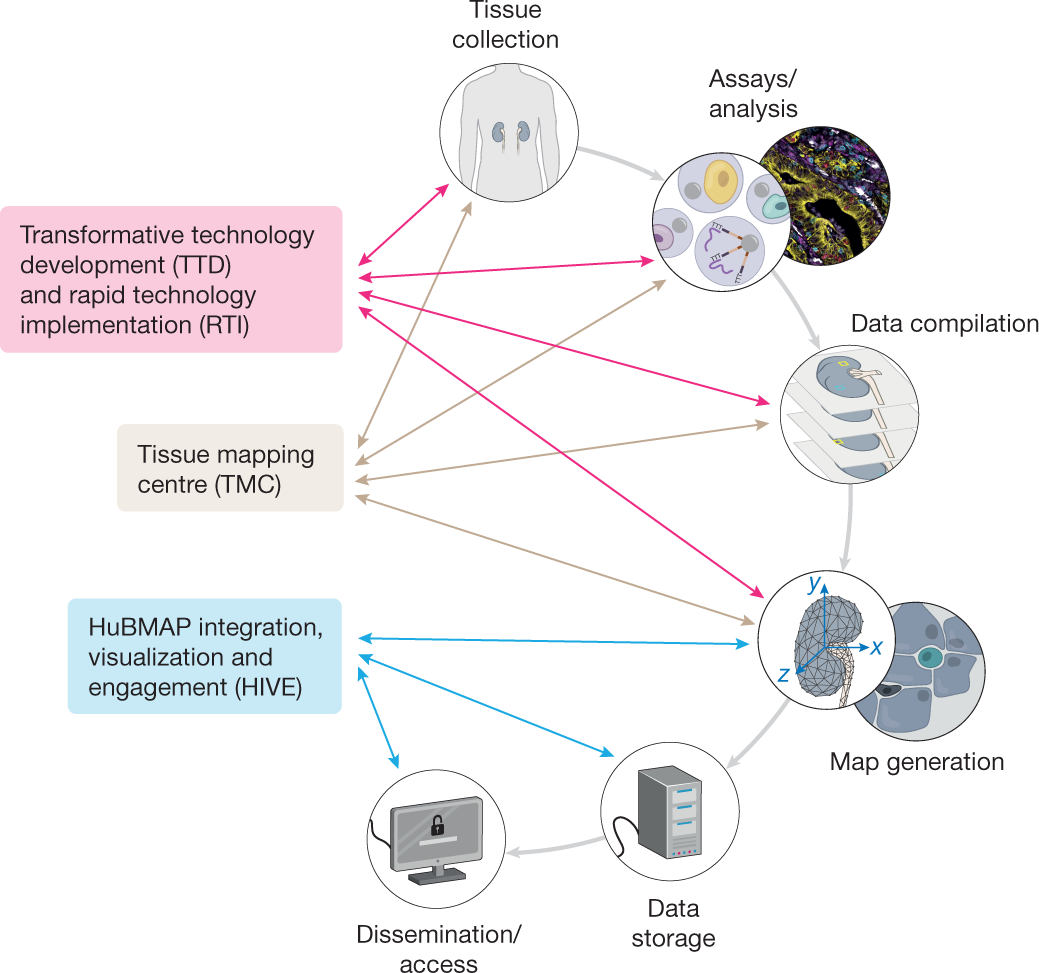Human Biomolecular Atlas Program on:
[Wikipedia]
[Google]
[Amazon]
 The Human Biomolecular Atlas Program (HuBMAP) is a program funded by the US
The Human Biomolecular Atlas Program (HuBMAP) is a program funded by the US 
Official website
* Biological databases Proteomics National Institutes of Health {{Biology-stub
 The Human Biomolecular Atlas Program (HuBMAP) is a program funded by the US
The Human Biomolecular Atlas Program (HuBMAP) is a program funded by the US National Institutes of Health
The National Institutes of Health (NIH) is the primary agency of the United States government responsible for biomedical and public health research. It was founded in 1887 and is part of the United States Department of Health and Human Service ...
to characterize the human body at single cell resolution, integrated to other efforts such as the Human Cell Atlas
The Human Cell Atlas is a global project to describe all cell types in the human body, to understand human health and for diagnosing, monitoring, and treating disease. The initiative was announced by a consortium after its inaugural meeting in Lo ...
. Among the products of the program is the Azimuth reference datasets for single-cell RNA seq data and the ASCT+B Reporter, a visualization tool for anatomical structures, cell type
A cell type is a classification used to identify cells that share morphological or phenotypical features. A multicellular organism may contain cells of a number of widely differing and specialized cell types, such as muscle cells and skin cell ...
s and biomarker
In biomedical contexts, a biomarker, or biological marker, is a measurable indicator of some biological state or condition. Biomarkers are often measured and evaluated using blood, urine, or soft tissues to examine normal biological processes, ...
s.
Millitome
A millitome (from Latin ''mille'', meaning "thousand," as in millimeter, and the Greek ''temnein'' meaning "to cut") is a device designed to hold a freshly procured organ and facilitate cutting it into many small tissue blocks for usage in single- ...
s are used to create uniformly sized tissue blocks that match the shape and size of organs from HuBMAP's 3D Reference Object Library.
The HuBMAP received 27 million US dollars
The United States dollar (symbol: $; currency code: USD) is the official currency of the United States and several other countries. The Coinage Act of 1792 introduced the U.S. dollar at par with the Spanish silver dollar, divided it int ...
of funding from the NIH in 2020 and about 28.5 million in 2021.

References
External links
Official website
* Biological databases Proteomics National Institutes of Health {{Biology-stub